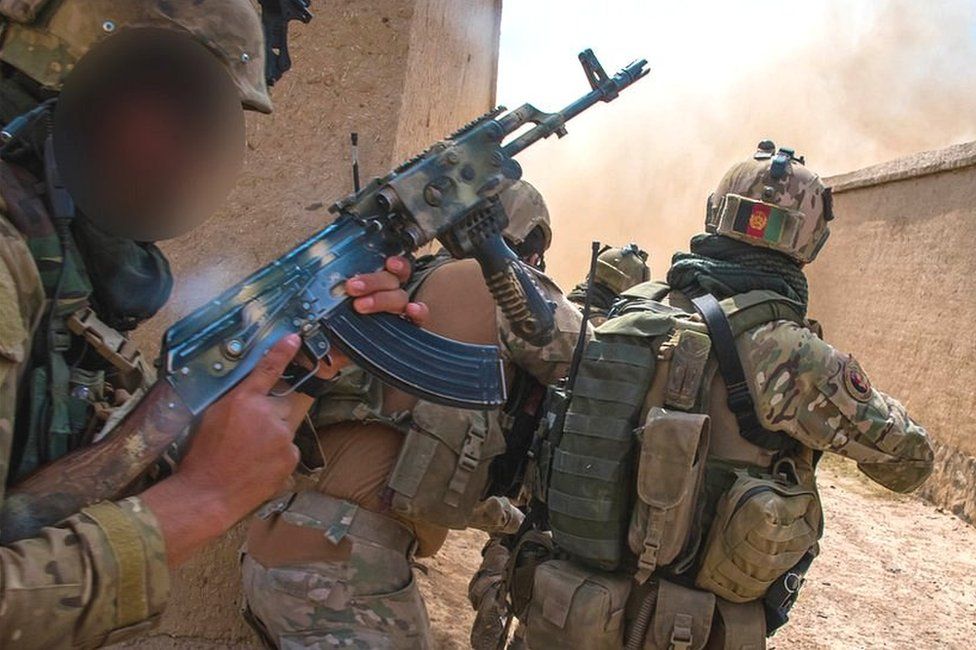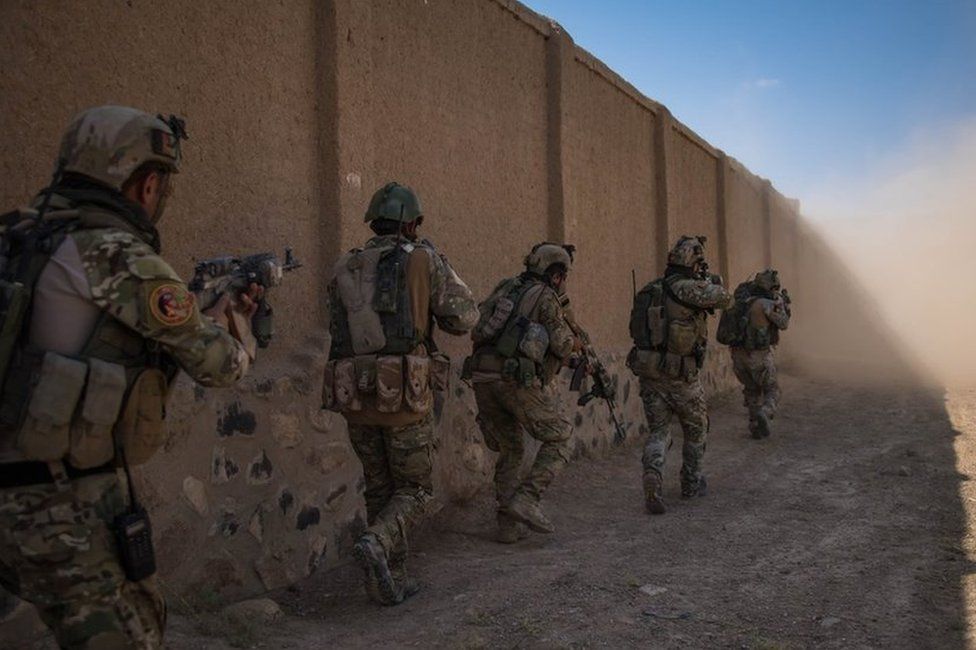
UK Special Forces blocked Afghan troops they had fought alongside from relocating to the UK after the Taliban seized power, BBC Panorama can reveal.
Leaked documents show special forces rejected applications despite some containing compelling evidence of service alongside the British military.
Afghan commandos accompanied British special forces on some of the most dangerous missions of the conflict.
The Ministry of Defence said it was conducting an independent review.
When the Taliban swept to power in August 2021, members of Afghan Special Forces units CF 333 and ATF 444 – known as the “Triples” – were among the groups most at risk of reprisal, having supported UK Special Forces in their fight against the Taliban.
They were eligible to apply for resettlement to the UK under the Afghan Relocation and Assistance Policy (Arap) scheme, but hundreds had their applications rejected. Dozens have reportedly been beaten, tortured, or killed by the Taliban since.
The Armed Forces Minister, James Heappey, has now announced a review of about 2,000 applications after admitting that the decision-making process behind some rejections was “not robust”.
The documents seen by Panorama include a Standard Operating Procedures (SOP) document showing that since at least 2023 all Triples applications reaching a basic threshold were sent to UK Special Forces for approval or denial of sponsorship.
The SOP document, which was obtained by the investigative newsroom Lighthouse Reports and shared with Panorama, shows that if UK Special Forces denied sponsorship, the applicant was automatically deemed ineligible and a rejection letter was sent out.
Panorama has also seen internal Ministry of Defence emails in which civil servants administering the relocation scheme describe being unable to challenge special forces’ rejections, even when they believed there was a strong case for resettlement.

Former members of the SAS, the army’s elite special forces regiment, have now told Panorama that they believe the veto outlined in the SOP document represents a clear conflict of interest for UK Special Forces.
The veto gave special forces decision-making power over applications at a time when a public inquiry in the UK was investigating allegations that SAS soldiers had committed war crimes on operations in Afghanistan where the Triples units were present.
The public inquiry has the power to compel witnesses who are in the UK, but not non-UK nationals who are overseas. If the Afghan Special Forces members were in the UK they could be asked to provide potentially significant evidence.
“It’s a clear conflict of interest,” said one former UK Special Forces officer.
“At a time when certain actions by UK Special Forces are under investigation by a public inquiry, their headquarters also had the power to prevent former Afghan Special Forces colleagues and potential witnesses to these actions from getting safely to the UK.”
Another former UK Special Forces officer who spoke to the BBC said: “At best it’s not appropriate, at worst it looks like they’re trying to cover their tracks.”
A spokesperson for the public inquiry team told Panorama that it could not comment on specific witnesses but was “aware of the recent press articles about the Triples” and would “continue to ask anyone with relevant information to come forward”.
Panorama has spoken to former members of the Triples who had their relocation applications rejected in 2023 and say they witnessed or reported what appeared to them to be war crimes committed by UK Special Forces.
We have also seen the documents submitted by two former Triples officers along with their applications to the Arap scheme. They include:
- An official invitation to SAS headquarters in Hereford to give a talk about the Triples
- Letters from the British embassy regarding pay
- Photographs with two directors of UK Special Forces and a British ambassador
- Photographs with Gen David Petraeus, commander of the Nato coalition and all US forces in Afghanistan
- A letter from a British officer describing an applicant as part of the “UK mentored Afghan SF” unit
- Previous visas to enter the UK
The officers behind these applications were both denied entry to the UK.
They told Panorama they are now in hiding in Afghanistan, moving from house to house, unable to stay with their families or to work.
One said he had been interrogated and beaten by the Taliban before he went on the run, the other said he had escaped first but that he heard the Taliban had gone to his home looking for him.
“I’m living in a very bad situation. I am in hiding and mostly my family can’t live together and we cannot go out and we cannot work,” he said. https://merujaksore.com/
“I was sure that my British colleagues and friends, who we worked for several years alongside, would help me to evacuate to safety. Now I feel that the sacrifices I made have been forgotten.